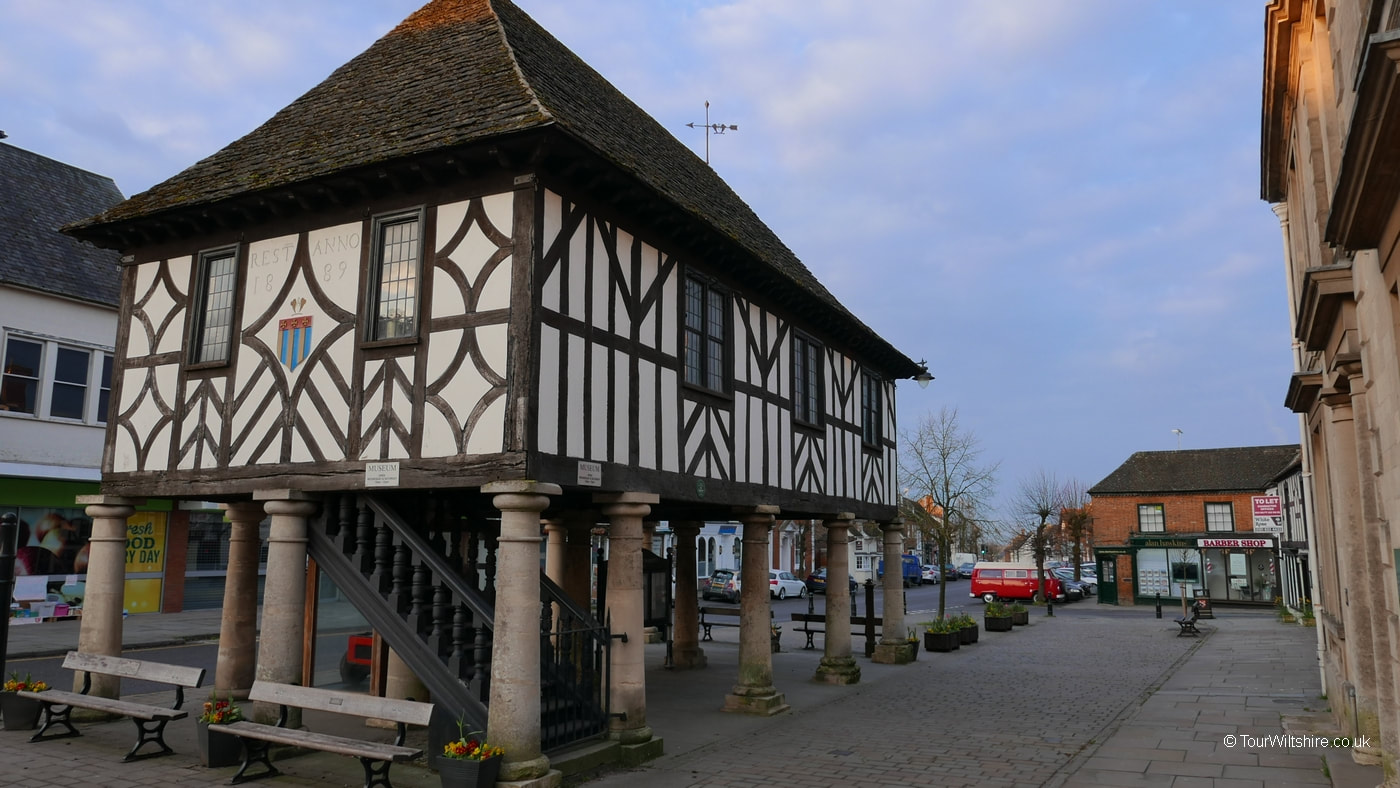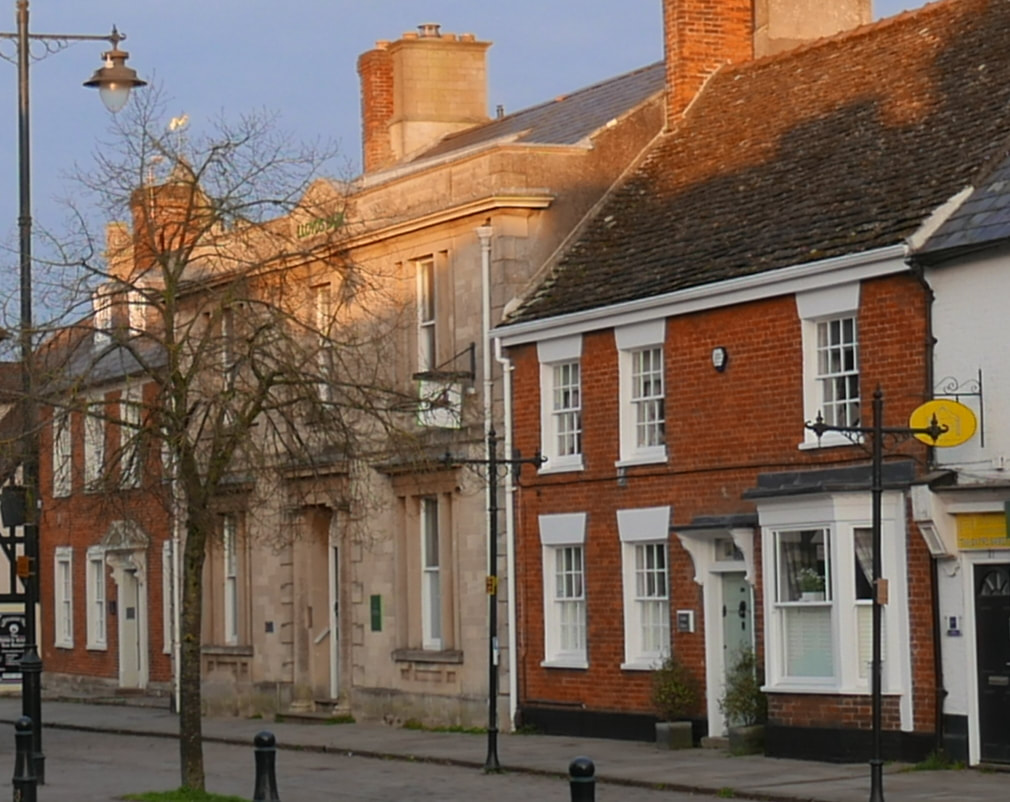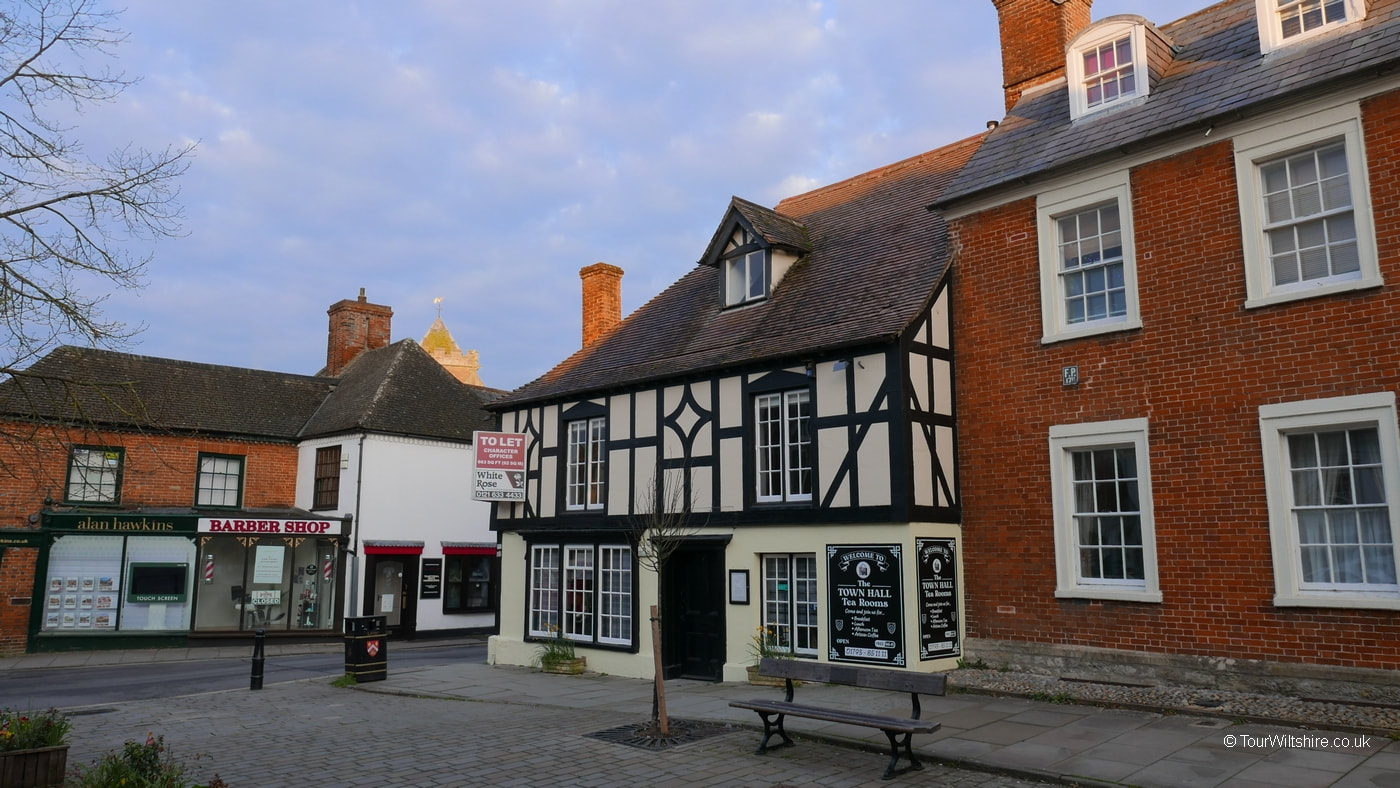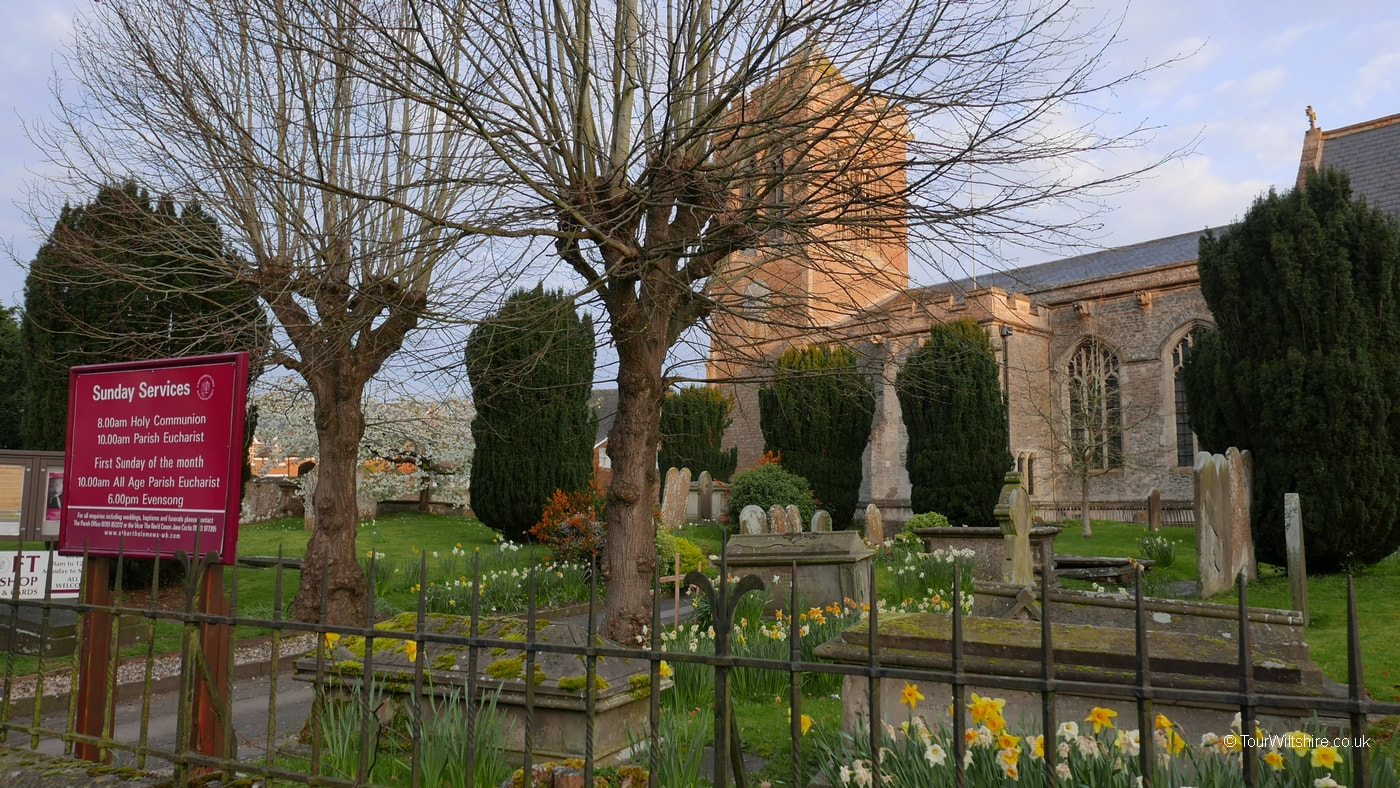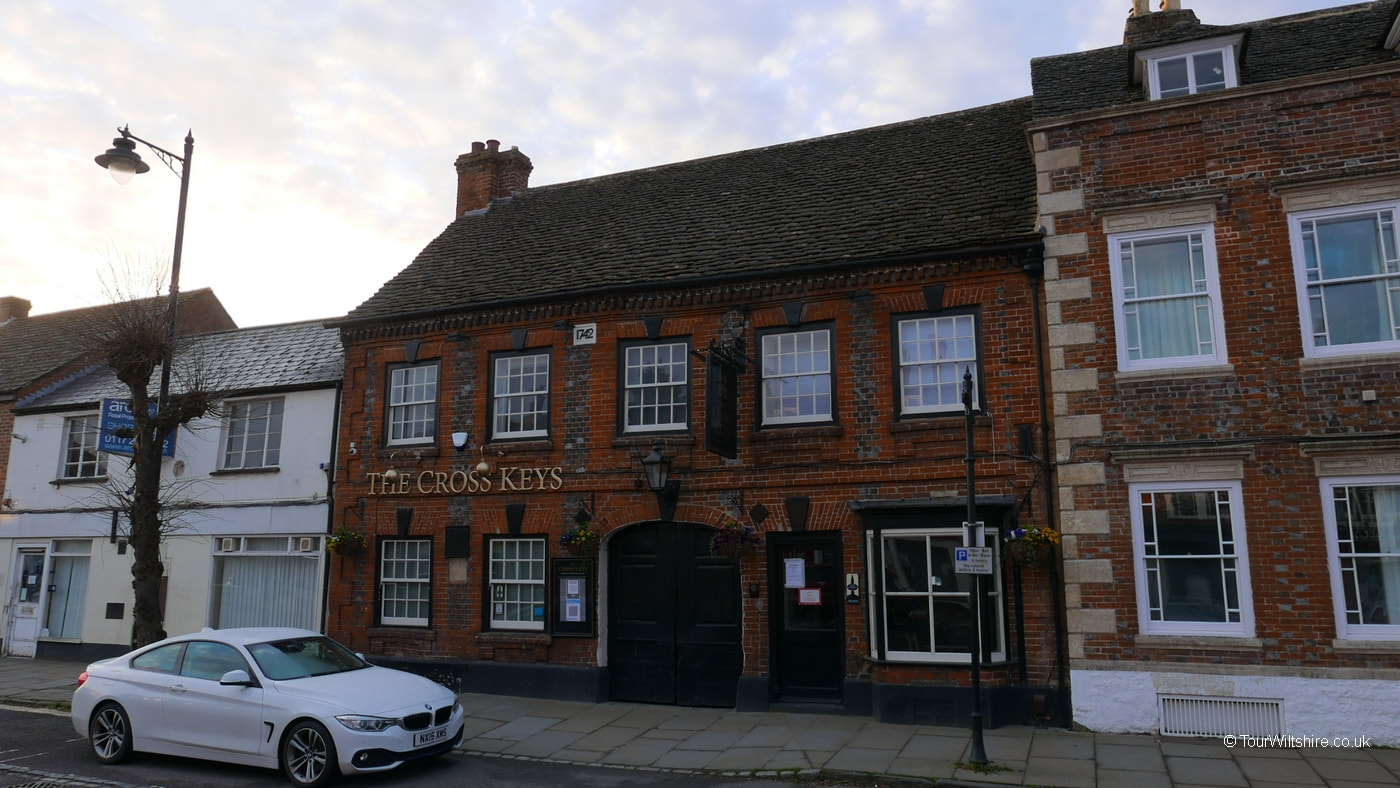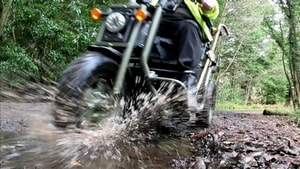⭐⭐⭐
Royal Wootton Bassett, Wiltshire
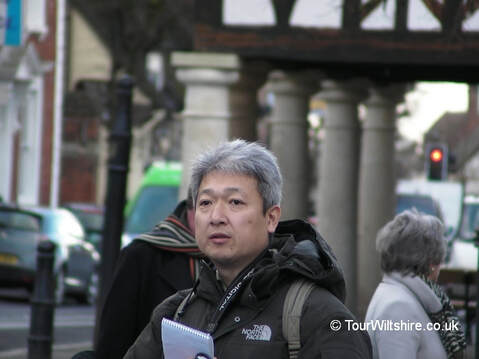 A Japanese reporter at one of the Royal Wootton Bassett repatriations.
A Japanese reporter at one of the Royal Wootton Bassett repatriations.
Wootton Bassett was granted the distinction of having bestowed upon it the prefix of 'Royal' in March 2011 by Elizabeth II in recognition of the warmth that was shown by the townsfolk to the families and friends of every fallen military person who passed through the town from the war in Afghanistan. Every repatriation was attended by hundreds of people, sometimes more than a thousand, who would line the streets in respectful silence as the town would come to a stop when the cortege passed by. It was a scene of respect that drew reporters from around the world. Today, thankfully, Royal Wootton Bassett has returned to a semblance of normality, but it will always be held in deep affection by the country.
Most striking now about the High Street is what has been most striking for the past 300 years, when the 1st Earl of Rochester presented to the town the Town Hall. Councillors are often unjustly accused of considering themselves to be above other folk, these actually were - as the building is on columns. The 'Town Hall' now houses a small museum the lock-up that was below it has gone, though the stocks remain.
Several other Listed buildings line the High Street with a mixture of shops and places to eat, both national and sole trader, making for a pleasant environment.
For reviews of places to eat in Royal Wootton Bassett click here.
Most striking now about the High Street is what has been most striking for the past 300 years, when the 1st Earl of Rochester presented to the town the Town Hall. Councillors are often unjustly accused of considering themselves to be above other folk, these actually were - as the building is on columns. The 'Town Hall' now houses a small museum the lock-up that was below it has gone, though the stocks remain.
Several other Listed buildings line the High Street with a mixture of shops and places to eat, both national and sole trader, making for a pleasant environment.
For reviews of places to eat in Royal Wootton Bassett click here.
Excerpts From The Wiltshire Council Timeline Of Royal Wootton Bassett (scroll)
1015 - Wodeton is ransacked by marauding Danes and settlement moves from what is now Dunnington Road to the present High Street
1271 - There is a water mill (Hunt's Mill) and 2 windmills in the parish
1500s-1600 - There is a fairly flourishing cloth manufacturing industry in the parish
1645 - There is an outbreak of plague in the town which kills 60 people
1787 - The ducking pond and ducking stool, used to punish scolding women, is last used about this time for ducking a woman named Peggy Lawrence
1793 - A workhouse for 12 people in Old Court is in existence
1798 - Innoculations against smallpox given to some of the children in the parish
1800s - Agriculture is still the main occupation of the parish
1804 - Construction of the Wilts and Berks Canal across the parish is now complete - A wharf is built at Vastern where coal is offloaded and local produce loaded
1841 - The railway line from London to Bristol is constructed through the parish and a station, Wootton Bassett Junction, opened
1880s - There is a brick making business and 3 brickyards in the town; by this time the town is paved throughout
1891 - First piped water supply to the town provided and a water tower is built in Coxstalls; the sewage works in Marlborough Road is built
1906 - All traffic on the Wilts and Berks canal has ceased and Hunt's Mill closes
1921 - First council houses built in Station Road
1933 - Electric street lighting is provided
1934 - The gasworks close
2009 - The town has become nationally known for the respect and tribute shown by its people when the bodies of members of the armed services are taken through the High Street after being flown home from Afghanistan.
2011 - Wootton Bassett made Royal Wootton Bassett. It was the first time since 1909 that a town had been granted a royal title.
1271 - There is a water mill (Hunt's Mill) and 2 windmills in the parish
1500s-1600 - There is a fairly flourishing cloth manufacturing industry in the parish
1645 - There is an outbreak of plague in the town which kills 60 people
1787 - The ducking pond and ducking stool, used to punish scolding women, is last used about this time for ducking a woman named Peggy Lawrence
1793 - A workhouse for 12 people in Old Court is in existence
1798 - Innoculations against smallpox given to some of the children in the parish
1800s - Agriculture is still the main occupation of the parish
1804 - Construction of the Wilts and Berks Canal across the parish is now complete - A wharf is built at Vastern where coal is offloaded and local produce loaded
1841 - The railway line from London to Bristol is constructed through the parish and a station, Wootton Bassett Junction, opened
1880s - There is a brick making business and 3 brickyards in the town; by this time the town is paved throughout
1891 - First piped water supply to the town provided and a water tower is built in Coxstalls; the sewage works in Marlborough Road is built
1906 - All traffic on the Wilts and Berks canal has ceased and Hunt's Mill closes
1921 - First council houses built in Station Road
1933 - Electric street lighting is provided
1934 - The gasworks close
2009 - The town has become nationally known for the respect and tribute shown by its people when the bodies of members of the armed services are taken through the High Street after being flown home from Afghanistan.
2011 - Wootton Bassett made Royal Wootton Bassett. It was the first time since 1909 that a town had been granted a royal title.
|
|


